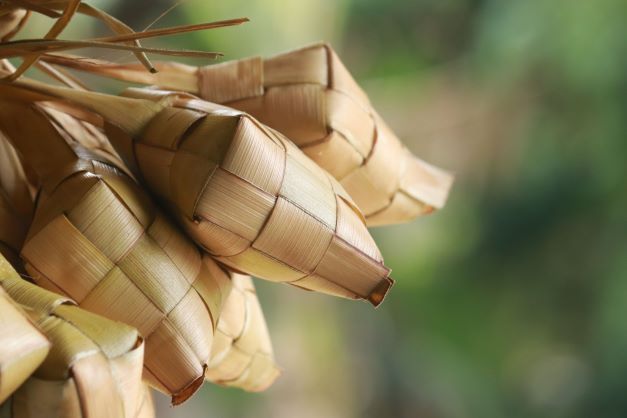In Indonesia, we will enter one of the festive seasons, Eid al-Fitr. Eid takes place at the end of Ramadan - a month of prayer and fasting. The holy month of Ramadan is associated with giving, sharing, caring, affection, harmony, and peace. In addition, many people spend more time with family, do charity and spend more money shopping in preparation for Eid al-Fitr.
However, before discussing further about consumer behavior during Ramadan, let's take a look at their preparation before the fasting month. It turns out that the first thing to do is to stock up on basic needs for suhoor & fast-breaking, such as rice, cooking oil, and sugar. Followed by other preparations such as buying new dresses, cleaning the house, purchasing new prayer stuff, and mudik.
Furthermore, are there any differences felt by the community related to fasting at the beginning of the pandemic vs. now? As we know, the Covid-19 pandemic officially entered Indonesia in March 2020. If we look back to 2020, the government implemented activities restrictions for the community. In addition, praying in mosques and mudik was not allowed at that time as a prevention to stop the spreading of the virus. In contrast to this year, they were able to break the fast together, Taraweeh at the mosque, and allow to mudik. Therefore, many felt that the government is loosening the regulations related to Covid this year.
Speaking about mudik as one of the traditions during Ramadan, many respondents said they had not returned to their hometown for three years because of the pandemic situation, the last time they returned to their hometown was in 2019, before the pandemic attack. This year, most of them (55%) plan to mudik because traveling is easier nowadays because the government has announced that domestic travelers no longer need to show the PCR test or rapid antigen test results if they have received the booster dose of vaccination.
Furthermore, the preparation before going to mudik is to consume vitamins regularly to maintain the immune system because the virus is still around. Another preparation is getting vaccinated, as mentioned before, those who already got the booster vaccination will find it easier to travel. Then, what happens if they are not allowed to mudik this year? What's the plan? 77% said they would reschedule the date, and 23% said they would still find a way to mudik. From the response, we can see public excitement for mudik this year.
For this year's mudik trip, most respondents (53%) said they chose to use private vehicles such as cars. On the other hand, 47% of respondents plan to use public transportation such as buses.
On the other hand, for those who decided not to mudik this year, the main reason is because of the dropped income. Some also said they were still afraid and unsure to travel during the pandemic. As a result, they prefer to stay at home and spend time with their loved ones.
During the holy month of Ramadan, many people spend more time with family, do charity and spend more money shopping in preparation for Eid al-Fitr. Balanced with the increasing needs, they also receive the Religious Festivity Allowance, known locally as THR. As a result, consumers' buying power increased significantly during the festive season. Data shows that in 2019 and 2021, average public spending increased up to 26% per day compared to before the festive season. Meanwhile, in 2020, the first year of Ramadan amid the pandemic, public spending was slightly decreased compared to the Ramadan season in 2019. However, in 2021, public spending was already back to normal, just like before the entry of the pandemic in 2019.
More specifically, the trend of sales at minimarket started to increase from D-48 before Eid. And the sales reach the peaks at D-2 before Eid until D+2 after Eid. In addition, in 2021, the sales showed significant growth compared to the last 2 years, which means that the economy is roaring back.
Furthermore, let's dive into the sales trend of several product categories during the festive season. We have basic needs in the first category, such as sugar, cooking oil, rice, & flour. For this category, the peak sales period happened 2 times, which is 14 days before fasting and 17 days before Eid.
In the Snack and Biscuit category, the peak sales period happens from D-20 before Eid until D+3 after Eid. This is because snacks and biscuits are usually given as hampers for relatives before Eid and generally served during Eid to welcome family or guests.
Similar to the snack and biscuit category, the beverages category reaches its peak season in the mid fasting until D+3 after Eid. Serving refreshing and sweet drinks to welcome Eid such as syrup, juice, and liquid milk has become a habit for Indonesian people.
For the personal care category, the peak sales period also happens in the middle of fasting (15 days before Eid) until D+2 after Eid. This category contains several items such as skincare, makeup, and perfume. Of course, on this occasion, many Muslims like to celebrate this special day by dressing up, looking, and smelling good to meet friends and relatives.
Meanwhile, the household category sales reach the peak from D-39 until D-19 before Eid. It means that people start to clean the house to welcome Eid during the fasting period.
We hope these insights are beneficial for you, and if you would like to know more about consumer behavior, feel free to contact us.




